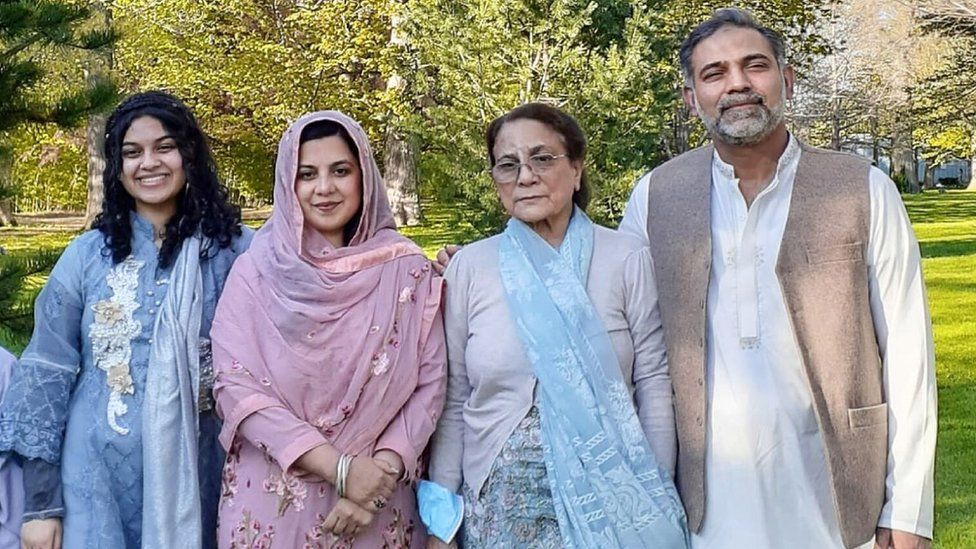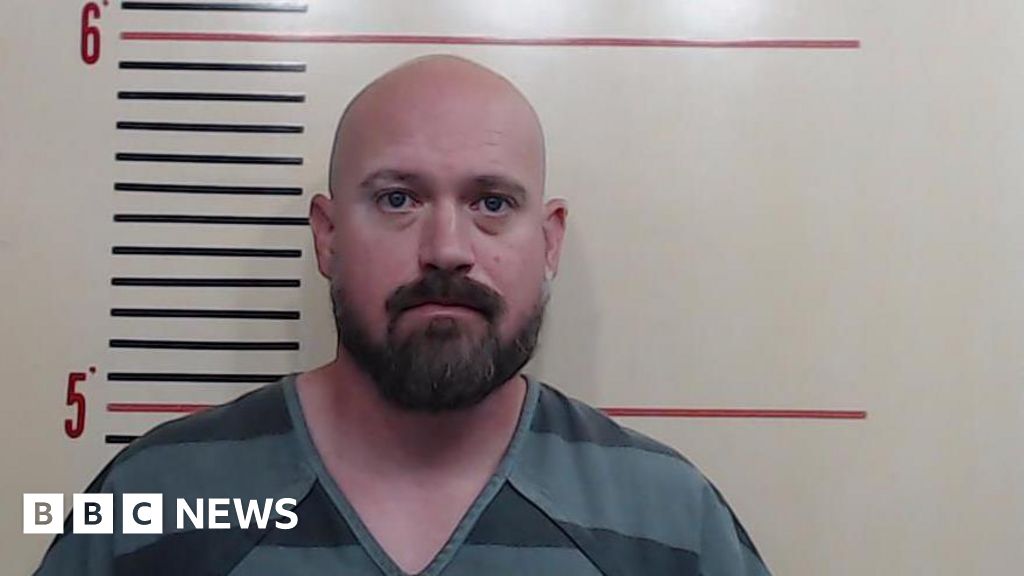ARTICLE AD BOX
 Image source, Courtesy Saboor Khan
Image source, Courtesy Saboor Khan
From left to right: Yumna Afzaal, Madiha Salman, Salman's mother Talat Afzaal, and Salman Afzaal were "the best" of their community, friends said
By Nadine Yousif
BBC News, Toronto
A Canadian jury has heard closing arguments in the case of a man accused of murdering four members of a Muslim family with his vehicle.
Nathaniel Veltman, 22, faces four first-degree murder charges and one count of attempted murder.
Mr Veltman also faces terrorism counts, with prosecutors arguing that he targeted the Afzaal family because of their faith.
Both the defence and prosecutors agree that Mr Veltman was behind the wheel.
But Mr Veltman has pleaded not guilty, arguing that he was in a "dreamlike state" on 6 June, 2021, the day he allegedly ran over three generations of the Afzaal family in London, Ontario while they were out for an evening walk.
Salman Afzaal, 46, and his wife Madiha Salman, 44, were killed in the attack - along with their daughter Yumna Afzaal, 15, and Mr Afzaal's mother Talat Afzaal, 74.
The couple's nine-year-old son was seriously hurt but survived.
The case marks the first time a jury in Canada is hearing legal arguments on terrorism related to white supremacy. The jury will not only have to decide on whether Mr Veltman is guilty of murder, but also whether his actions can be described as terrorism.
Closing arguments were made on Tuesday in a Windsor, Ontario court, after 10 weeks of proceedings.
Testifying in his own defence, Mr Veltman told the jury during the trial he ingested a large quantity of magic mushrooms about 40 hours before the crash.
He admitted that the thought of running over Muslims came to him twice after taking the drug, but he resisted. Then, while out for food, he said he saw the family and could not stop the "urge".
Another witness, forensic psychiatrist Julian Gojer, told the jury that Mr Veltman has been diagnosed with several mental health issues, including obsessive-compulsive disorder, severe depression, anxiety and a personality disorder.
He testified that the magic mushrooms likely exacerbated his existing mental health conditions.
Image source, Getty Images
Image caption,The murder of the Afzaal family was met with widespread grief and shock in Canada, where rallies were held in their honour
During their closing arguments, Christopher Hicks, the lawyer for Mr Veltman, described his client's mental state at the time as "a runaway freight train headed for explosion".
Prosecutors on the other hand have argued that Mr Veltman, who was 20 at the time of his arrest, was motivated by hate and white nationalist ideologies.
They had called a total of 19 witnesses to the stand and have shown the jury video of the crash.
In the video, Mr Veltman is seen wearing a bullet-proof vest and an army helmet. In an interview with police after the incident, he identified himself as a white nationalist and said he struck the family "because they were Muslim".
Prosecutors also played audio of a 911 call Mr Veltman made after the crash, in which he said: "Come over and arrest me. I did it on purpose."
Mr Hicks has argued that Mr Veltman made those statements under duress, and that it is difficult to prove he had intent to kill on the day of the crash because of his various mental disorders.
But Crown lawyer Fraser Ball told the jury that the case against Mr Veltman is "overwhelming" and that his confession is "logical and coherent".
He said that the accused had a message for Muslims: "That message was strong. That message was brutal. That message was terrible."
"He hit exactly who he wanted to hit, exactly how he wanted to hit them," Mr Ball said.
The trial has been watched closely by law experts in Canada to see if the country's terrorism charges, enacted in the wake of the 11 September attacks on the US, could be applied to someone who allegedly targeted a family because they are Muslim.
Andrew Botterell, a law professor at the University of Western Ontario in London, said he will also be watching to see if Mr Veltman's defence is successful, as it is "quite a high bar" to prove that a person is not criminally responsible because of a mental disorder.
"The mental disorder has to be such that it rendered you incapable of understanding what it was that you were doing, or understanding that what you were doing was wrong," Mr Botterell told the BBC.
The jury will now deliberate the fate of Mr Veltman, who faces life in prison if found guilty.

 1 year ago
38
1 year ago
38








 English (US) ·
English (US) ·